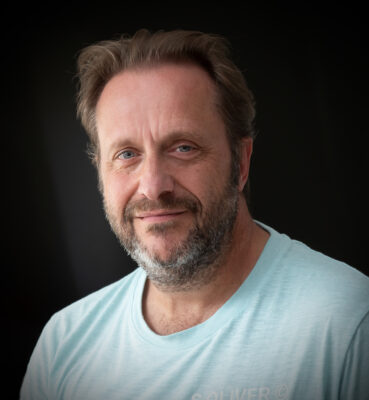Grondelaers, dr. S. (Stef)

Onderzoeksgroep
Linguïstiek en TaalvariatieBiografie
Stefan Grondelaers (1966) is onderzoeker linguïstiek en taalvariatie bij het Meertens Instituut. Hij studeerde Engels en Taalwetenschap aan de universiteiten van Brussel en Leuven. In 2000 promoveerde hij in Leuven op een proefschrift waarin hij aantoonde dat het er in Er staat een paard in de gang wel degelijk iets betekent, en dat je met dat kleine, lastige woordje kan bewijzen dat Belgisch en Nederlands Nederlands een erg verschillende “syntactische motor” hebben. In zijn huidige onderzoek bestudeert Grondelaers variatie en verandering in het Nederlandse, Belgische en Surinaamse Nederlands, vooral op basis van experimentele designs en corpusonderzoek met sociale media-data. Vóór zijn aanstelling bij het Meertens Instituut was Grondelaers verbonden aan de Universiteit Leuven en de Radboud Universiteit Nijmegen. Met Grondelaers’ werk is een belangrijke valorisatiedimensie verbonden: het afgelopen decennium heeft hij de Nederlandse Taalunie en de Belgische en Nederlandse publieke en regionale omroepen geadviseerd over hoe ze kunnen omgaan met de uitdaging van een sterk verander(en)de standaardtaalrealiteit.
Specialisatie: Variatie en verandering in de nationale variëteiten van het Nederlands
Uitgelichte publicaties:
- Grondelaers, Stefan, Roeland van Hout & Paul van Gent (2019). Re-evaluating the prestige of regional accents of Netherlandic Standard Dutch. The role of accent strength and speaker gender. Journal of Language and Social Psychology 38(2): 215-236.
- Grondelaers Stefan, Dirk Speelman, Chloé Lybaert & Paul van Gent (2020). Getting a (big) data-based grip on ideological change. Evidence from Belgian Dutch. Journal of Linguistic Geography 8(1).
- De Troij, Robbert, Stefan Grondelaers, Dirk Speelman & Antal van den Bosch (2021). Lexicon or grammar? Using memory-based learning to investigate the syntactic relationship between Belgian and Netherlandic Dutch. Natural Language Engineering 28(5), 649-667.
- Grondelaers, Stefan & Stefania Marzo (2023). Why does the shtyle spread? Street prestige boosts the diffusion of urban vernacular features. Language in Society 52(2), 295-320.
- Grondelaers, Stefan, Roeland van Hout, Hans van Halteren & Esther Veerbeek (2023). Why do we say them when we know it should be they? Twitter as a resource for investigating nonstandard syntactic variation in The Netherlands. Language Variation and Change 35(2), 223-245.


